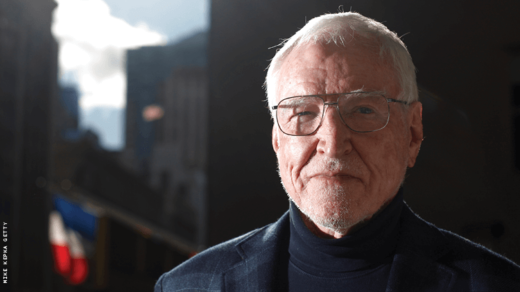‘Call Your Mother’s’ Queer Star Austin Crute Follows His Own Path
Author: Taylor Henderson
Austin Crute represents the next generation of LGBTQ+ talent. With his latest role, as Lane on ABC’s new sitcom Call Your Mother, Crute is one of the few out actors on prime-time network television playing a queer character.
As a 25-year-old gay Black man, he knows the importance of this representation. Most gay characters on network TV have a Modern Family aesthetic, where “they’re grown and figuring out how to have kids and do stuff,” Crute explains. Seeing a young single gay guy living in Los Angeles hits differently than most roles.
“There are not that many millennial, Gen Z queer icons right now,” says Crute, who is adding some needed flavor to the mix.
The Georgia native is chameleon-like in his roles; it’s hard to believe they’re all the same person. His first part was Black Justin Bieber on FX’s Atlanta, followed by appearances in Orange Is the New Black, Trinkets, Daybreak, and Booksmart. “I feel like when you watch my characters and then you meet me in real life, you can see the common thread in my real self. But I’m not my character,” he says.
Between playing his Rolodex of queer characters, Crute received his fair share of heartening — and thirsty — direct messages. “I get a lot of messages on Twitter, Instagram, even Snapchat…just like wholesome DMs, of kids telling me that they came out to their parents because of me; they were watching Daybreak and it inspired them to say something,” he says. He’s even “had DLs [down-lows] hollering at me and all types of stuff,” Crute laughs. “It is, in a weird way, inspirational to myself that I can be a voice like this I didn’t realize that I was going to be.”
Crute grew up “in an environment where that stuff does not fly…. I didn’t have anybody encouraging me to lean into queerness,” says the pastor’s son who attended a predominantly white private Christian school in Atlanta. “It was quite the journey to get to this place.”
Growing up, he was inured to this toxic masculinity, misogyny, and religious dogma. Then he left home for New York University. “My world changed. I went into NYU with some crazy opinions and ideals, and by the time I left, I had bagged a boy and a half already. I studied abroad in Berlin and I got my full life. A Spaniard I was experimenting with opened me all the way up,” he recalls. “He was 22, I was 21, and we had fun. That rhymed!”
Crute came out to his folks during his last semester of college, just after he was cast as the hilariously flamboyant Alan in Booksmart. “I was in a fight with my mom and I could tell that’s where the tension was coming from. I was like, ‘Silence.’ And I just did it.”
Crute attended NYU not for acting but for music (look for his debut EP, Twenties, this spring). Although he has natural talent, wit, and charisma, he needed a fake-it-till-you-make-it attitude to begin his Hollywood journey.
“I didn’t know how to read the call sheet until halfway through [filming the Netflix series] Daybreak. All through Booksmart, I faked it completely. It just happened that I moved out here after Booksmart and continued to audition and continued to go crazy.” He hopes his story inspires others to chase their dreams. “Now I’m just in a lifestyle and just doing it. If you want to do it, you can do it.”
Knowing the media’s power to open minds and hearts, Crute hopes his roles allow those questioning their sexuality to be themselves without worrying about labels.
“I was hanging out with this guy and he’s straight in his life, but obviously, we have vibes,” Crute recounts with a giggle. “When the vibes were switching up on some Netflix-and-chill type stuff, it becomes, ‘Oh, well, you know, I don’t even know if I’m…’ I said, ‘But it doesn’t even matter about that. What do you want? Whoever you are, what do you want?’ I feel like people wait until they have a label on them, straight or gay, to then pursue what they want, and it’s like, no, it’s a spectrum. We don’t have to operate like this. We can operate on a desire-based basis. You don’t have to operate on an identity-based basis.”
“Hopefully I have given some permission, some leeway to people to just chill out,” he concludes. “It’s not that deep.”
Original Article on The Advocate
Author: Taylor Henderson




